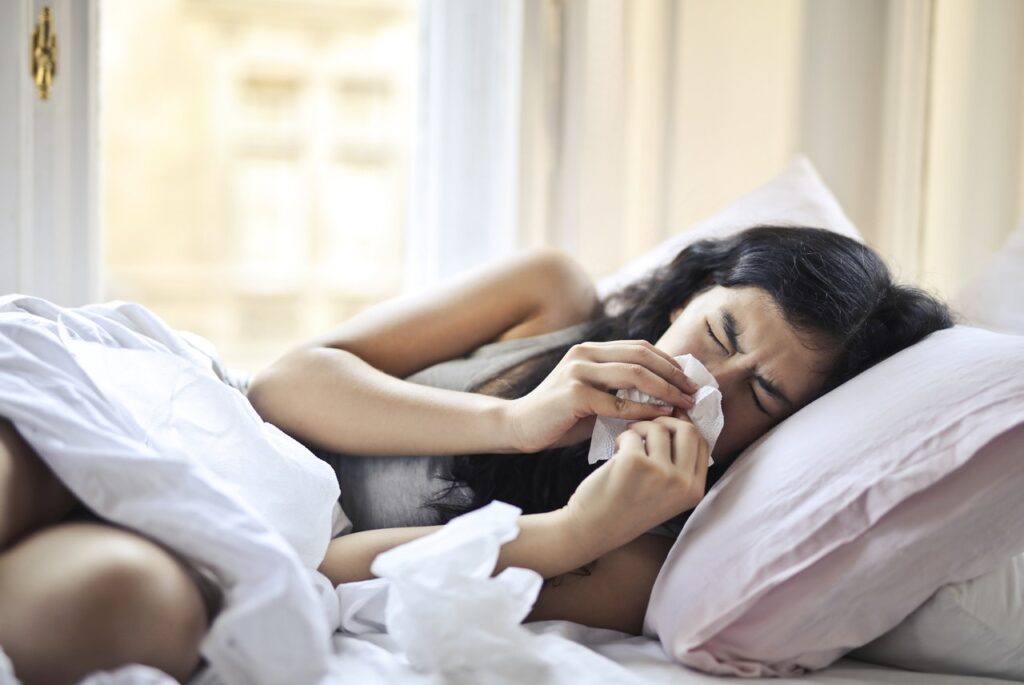Words: Swetha Prasanna GANGAVARAPU
You have mapped it out to sleep like a baby — a healthy dinner, a light walk, and comfortable nightwear to get into bed. No sooner than you lie down, you wake up with constant sneezing, watery eyes and runny nose. Does this not sound like yet another sleepless night — a nightmare, no less— for people with allergies?
Allergies get worse at night and daybreak. But, remember: nightly episodes can leave us sleep-deficient. What’s more, they tend to keep us awake for most part of the night and sleepy during daytime. Studies indicate that a staggering 93 per cent of people with allergies don’t get adequate sleep at night.
Allergies & Nightly Aggravation
There are a host of allergies that affect us; they range from a simple skin rash to tummy distress. Well, as for allergies that irk our nasal passage — they can deprive us of quality sleep.
The Culprit May Be Your Bedroom
- Surprised — you may well be. Our bedrooms are havens of allergy, the common perpetrators being mould, pollen, and dust mites
- Dust mites thrive in warm areas: dusty pillow covers, bed sheets and beds
- Mould can creep into your bedroom from leaky taps and moisture in the ceiling, or walls
- Pollen, the ‘notorious’ allergy trigger, can enter your bedroom through your clothes, or hair, and jump-start your allergy.
Furry Friends. Pets are great companions, also stress busters, but not for people with allergies, especially before sleeping time. Pet dander may, unfortunately, be one of the primary causes for your sleeplessness, ‘thanks’ to your allergic episodes.
Sleep. When we sleep, certain allergy-causing particles residing in our nostrils may enter our throat than when we are upright during the day. This may annoy the nasal cavity, triggering the allergic response.
Also, when we lie down, the mucous ‘pooled’ in our heads finds no way to drain. Your lying-down posture can also worsen your post-nasal drip and this, in turn, may cause the wheezy discomfort and/or create difficulty in breathing.
Try to sleep on your side to reduce the annoyance.
Prevent Night-Time Allergies. The watchword: prevention is best medicine. This applies to allergies in every context.
Here’s your ‘how-to’ — to avoiding night-time allergies and to breathing well and sleeping better:
Bedroom Ventilation
- A room with proper natural ventilation may help ‘beat’ your allergy triggers
- Allow ample sunlight and natural air to flow into your bedroom during the day
- Use fans to aid ventilation and use ACs only after you close the windows
- Keep the windows closed at night before you sleep to avoid the penetration of pollen through them
- Vacuum, or deep clean the bedroom using the wet mopping method.
Bed Linen. Wash your bed linen in hot water regularly to thoroughly free them from allergy triggers.
Indoor Air Quality. Use indoor air quality purifiers to maintain healthy moisture and temperature levels. Air purifiers help to reduce allergens at home and in the bedroom.
Say ‘No’ To Pets In The Bedroom. This may sound harsh to pet lovers, but avoiding pets in your bedroom is one useful practice in preventing allergens.
Adjust Bed Set-Up. Keep the head a little above the rest of the body, when you lie down. Use light, additional pillows under your head, if you like, but not too many [You may get neck pain, the following morning].
Hot Shower. A hot shower before you hit the bed may help to ease your allergic response.
Warm Decaffeinated Drinks. Before going the bed, sip a cup of home-made soup, or any decaffeinated drink to minimise nasal inflammation. A cup of pleasantly relaxing chamomile tea, or plain warm water, can ease your nasal tract like no other. Naturally.
Exercise During Daytime. A 30-minute physical activity in natural daylight can go a long way to building your immunity besides normalising your circadian rhythm.
Night-time allergies are often long-term conditions. Identifying your allergy triggers and preventing them, is, perhaps, the best possible ‘tool-kit’ to savouring a good night’s sleep and improving your overall wellness.

